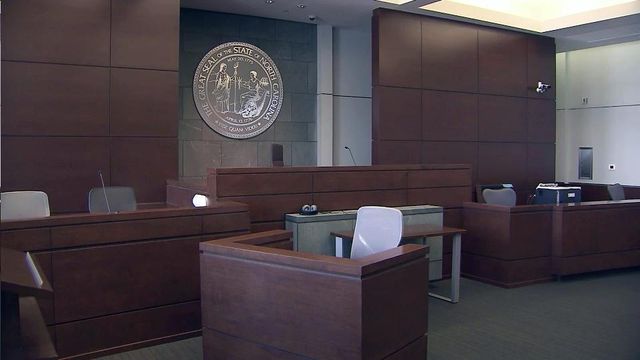Proposal to shift judicial discipline raises questions
Good-government advocates, lawyers and even state Supreme Court Chief Justice Sarah Parker are questioning the maneuvering that led to a bill on Gov. Pat McCrory's desk that would hide most complaints about judges from the public.
Posted — UpdatedHouse Bill 652 strips the Judicial Standards Commission of its authority to issue public reprimands and places all forms of public discipline in the hands of the North Carolina Supreme Court. All disciplinary hearings would be private, and case records would be confidential unless the Supreme Court decides to take disciplinary action.
The measure was passed in the final hours of this year's legislative session – less than a week after the Senate had already voted it down.
"This was passed under cover of darkness. I don't know how else to characterize it," said Catharine Arrowood, president-elect of the North Carolina Bar Association.
The organization recently called on McCrory to veto the bill, saying the Judicial Standards Commission's processes are more transparent.
The commission, made up of judges and lawyers appointed by the Supreme Court, investigates complaints against judges and takes disciplinary action, if needed. Those actions are public record, so voters can find out if a judge has had problems.
Sen. Buck Newton, R-Wilson, said in a July 19 debate on the Senate floor that House Bill 652 would protect judges from what he called "blackmail" by the commission.
"A few members of the judicial commission have said, 'If you don't accept what we do, we're going to publicly admonish you and embarrass you, especially right before an election,'" Newton said.
"This weakens the right of the public to know what is happening with our judges," responded Sen. Ellie Kinnaird, D-Orange.
"To me, it sounds like lawyers protecting lawyers," said Sen. Tom Apodaca, R-Henderson. "When we run for office, if somebody says something about us a week before it, we don't have anywhere to go. I'm voting against this."
The bill failed by a 22-12 vote, with Democrats and Republicans voting against it.
Yet, Apodaca resurrected the bill late on July 25 with no public notice. He was among a dozen senators, including Wake County Republican Sens. Chad Barefoot and Tamara Barringer, who changed their votes to make sure the bill passed.
"It was rather astounding," Arrowood said.
Apodaca, Newton, Barefoot and Barringer, along with bill sponsor Sen. Thom Goolsby, R-New Hanover, haven't responded to requests for comment about the bill.
The Judicial Standards Commission already has a process to protect judges from frivolous complaints, and it's been working fine for 40 years, Arrowood said. House Bill 589 is a huge change to make without any public debate for no apparent reason other than politics, she said.
"We should periodically study how we handle this kind of thing," she said. "There's been no study, and there's been no complaint, no concern. So you have to wonder."
McCrory has until Aug. 25 to decide whether to sign the bill, veto it or let it become law without his signature.
Related Topics
Copyright 2024 by Capitol Broadcasting Company. All rights reserved. This material may not be published, broadcast, rewritten or redistributed.






